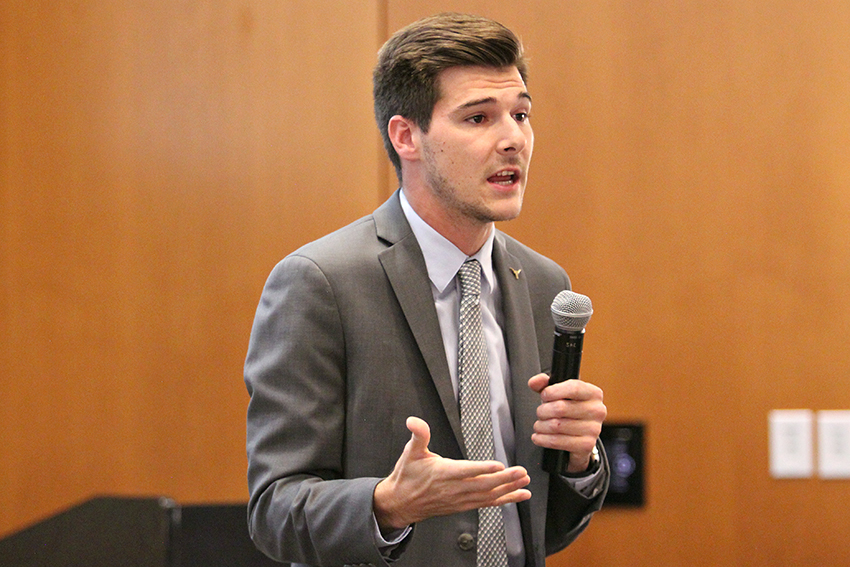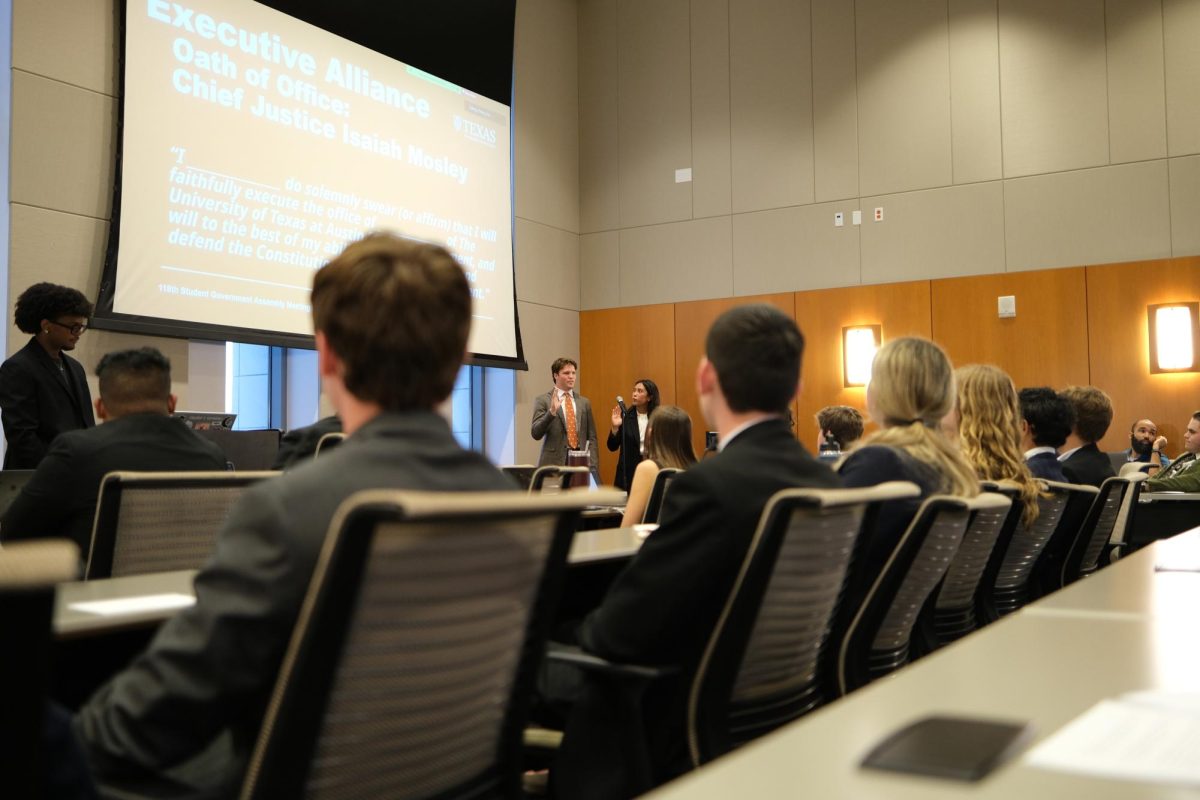Student Government has hit the brakes on legislation calling for UT to vote against the inclusion of Brigham Young University in the Big 12 Conference.
The resolution, which was first considered by SG president Kevin Helgren last month, would have spoken against BYU’s addition to the conference because of a passage in its honor code, one Helgren said he considers anti-LGBT.
On Oct. 17, the Big 12 voted not to expand for the time being, keeping the conference at 10 universities and leading Helgren to halt his planned resolution.
“I am still, as the student body president and as a member of the LGBT community, interested in having conversations with people at BYU just because I firmly believe in the importance of creating LGBT-friendly environments on college [campuses],” Helgren said. “Again, though, the question becomes where does my jurisdiction end and … BYU’s student body president’s jurisdiction begin. So for all intents and purposes I am not planning on going through with the resolution because the crux of the resolution was pertaining to the Big 12.”
According to the BYU website, the honor code states, “Homosexual behavior is inappropriate and violates the Honor Code. Homosexual behavior includes not only sexual relations between members of the same sex, but all forms of physical intimacy that give expression to homosexual feelings.”
Helgren said he has been in contact with the Understanding Same Gender Attraction group at BYU, which states on its website that it wishes to provide “a place for open, respectful discussions on the topic of same-gender attraction and LGBTQ issues.”
In an email sent to Helgren obtained by The Daily Texan, USGA’s president, Addison Jenkins, supported Helgren’s possible resolution but asked for him to make the resolution as specific as possible in order to create a conversation to better the lives of LGBT students at BYU.
“I believe that calls for BYU or the [Latter Day Saints] Church to abandon its views on marriage will be met only with Constitutionally protected resistance,” Jenkins said in the email. “But specific and meaningful resolutions — one’s [sic] that point out the clear difference in standards for cisgender/heterosexual and LGBTQ students, or note the complete dearth of resources for queer people on campus — can help further the dialogue about how we can best serve queer students and athletes at BYU.”
USGA did not respond to separate requests for comment.
The Big 12 may still consider expansion in future meetings, something Helgren said would cause him to then continue working to pass his lulling resolution.
James Che, co-director of the Queer and Trans Student Alliance at UT, said he believes SG’s time would be better spent writing legislation to benefit people who are marginalized to a greater extent and identify as LGBT.
“I personally think that there are larger issues to address in the LGBT community,” said Che, a humanities junior. “To be frank, I think this conversation on the Big 12 kind of diverts from larger issues that SG needs to address. I think when it comes down to it, human rights violations come before who gets to play football against who.”














